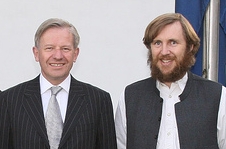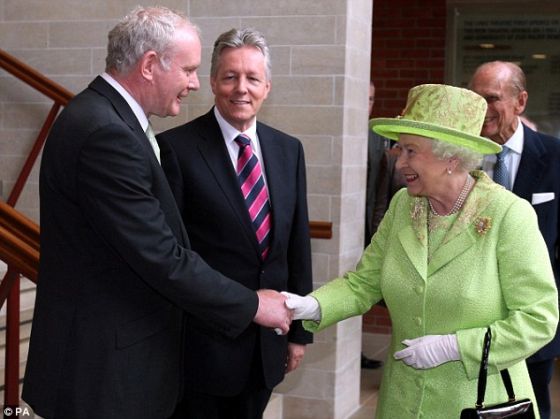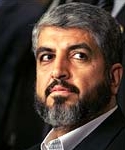Pakistan military retreats from Musharraf’s influence
By Tim Johnson, McClatchy, January 18, 2008
As President Pervez Musharraf grows more unpopular in Pakistan, his newly named successor as army chief is seeking to distance the institution from the Musharraf regime and pull back its virtual occupation of the top senior ranks of civilian ministries and state corporations.
Gen. Ashfaq Parvez Kayani, who was named to the top military job in late November, took two steps this week. First, he barred all senior military officers from meeting directly with Musharraf without prior approval and prohibited officers from having any direct involvement in politics. Second, he recalled many army officers from civilian job assignments.
Kayani’s new path could help restore the image of a military that’s bruised by association with Musharraf’s excesses during eight years of rule since a 1999 coup and weakened by the worsening domestic security situation. [complete article]
Frontier insurgency spills Into Peshawar
By Jane Perlez, New York Times, January 18, 2008
At the core of the troubles here, many say, lie demands by the United States that the Pakistani military, generously financed by Washington, join in its campaign against terrorism, which means killing fellow Pakistanis in the tribal areas. Even if those Pakistanis are extremists, the people here say, they do not like a policy of killing fellow tribesmen, and fellow countrymen, particularly on behalf of the United States.
The Bush administration is convinced that Al Qaeda and the Taliban have gained new strength in the past two years, particularly in the tribal regions of North and South Waziristan and Bajaur. It has said it is considering sending American forces to help the Pakistani soldiers in those areas. Mr. Musharraf has scoffed at the idea.
Any direct intervention by American forces would only strengthen the backlash now under way against soldiers and the police in Peshawar, said Farook Adam Khan, a lawyer here. That reaction spread last week to Lahore, the capital of Punjab Province, where a suicide bomber killed almost two dozen policemen at a lawyers’ rally, he said.
“Pakistani soldiers never used to be targets,” Mr. Khan said. “Now we have the radicals antagonized by Musharraf and his politics of cozying up to the United States.” [complete article]
Militants make a claim for talks
By Syed Saleem Shahzad, Asia Times, January 18, 2008
Islamabad has tried to defuse the situation by negotiating with selected Taliban leaders. Most recently, a Pakistani Taliban shura (council) headed by Hafiz Gul Bahadur in North Waziristan responded positively to a government offer of a ceasefire, despite opposition from Takfiri elements who view non-practicing Muslims as infidels.
The backlash was immediate. Militants launched attacks in Mohmand Agency, followed by Wednesday’s mass assault.
This response is orchestrated by al-Qaeda from its camps around the town of Mir Ali in North Waziristan. Al-Qaeda views any peace agreements with the Pakistani Taliban as a government maneuver to split the militants, and also says Islamabad has been consistently intransigent over the years.
Al-Qaeda demands that it be the chief interlocutor in any peace talks, and it has set its bottom line: guarantees of the withdrawal of all security forces from the tribal areas; enforcement of sharia law, the release of Maulana Abdul Aziz of the radical Lal Masjid (Red Mosque), who was apprehended last year; and that President Pervez Musharraf step down. [complete article]
Talking to the wrong people
By Syed Saleem Shahzad, Asia Times, January 19, 2008
Throughout 2007, the British Embassy in Kabul under Sherard Cowper Coles made desperate overtures in southwestern Afghanistan to find a political solution with the Taliban, but without Mullah Omar. Multiple clandestine operations were launched and millions of dollars were funneled to the Taliban.
However, it all came to nothing and only caused serious differences between the two major allies – Britain and the US. And all the time the Taliban consolidated their position in the south.
 The case of Irishman Michael Semple, who was acting head of the European Union mission in Kabul, is instructive. The fluent Dari-speaking Semple had spent over 18 years in Afghanistan in various capacities, including with the United Nations and as an advisor to the British Embassy in Kabul, before being expelled last month after being accused of talking to the Taliban. [complete article]
The case of Irishman Michael Semple, who was acting head of the European Union mission in Kabul, is instructive. The fluent Dari-speaking Semple had spent over 18 years in Afghanistan in various capacities, including with the United Nations and as an advisor to the British Embassy in Kabul, before being expelled last month after being accused of talking to the Taliban. [complete article]
See also, Pakistani forces say kill up to 90 militants (Reuters) and Taliban now seriously in the fight, war begins: NGO (AFP).
NATO hears ‘noise before defeat’
By M K Bhadrakumar, Asia Times, January 19, 2008
Ashdown’s real mission [– Paddy Ashdown is the UN’s newly appointed special envoy to Afghanistan –] lies elsewhere, in addressing the core issue: What do we do with the Taliban? No doubt, the Taliban’s exclusion from the Bonn conference seven years ago proved to be a horrible mistake. That was also how the Afghan and Pakistan problem came to be joined at the hips.
Pakistan President Pervez Musharraf made a valid point in his interview with the German weekly magazine Der Spiegel this week when he said al-Qaeda isn’t the real problem that faces Pakistan. “I don’t deny the fact that al-Qaeda is operating here [Pakistan]. They are carrying out terrorism in the tribal areas; they are the masterminds behind these suicide bombings. While all of this is true, one thing is for sure: the fanatics can never take over Pakistan. This is not possible. They are militarily not so strong they can defeat our army, with its 500,000 soldiers, nor politically – and they do not stand a chance of winning the elections. They are much too weak for that,” Musharraf said.
The heart of the matter is Pashtun alienation. The Taliban represent Pashtun aspirations. As long as Pashtuns are denied their historical role in Kabul, Afghanistan cannot be stabilized and Pakistan will remain in turmoil. Musharraf said, “There should be a change of strategy right away. You [NATO] should make political overtures to win the Pashtuns over.”
This may also be the raison d’etre of UN secretary general Ban Ki-moon’s intriguing choice of a Briton as his new special representative. Conceivably, the inscrutable Ban has been told by Washington that Ashdown is just the right man to walk on an upcoming secretive bridge, which will intricately connect New York, Washington, London, Riyadh, Islamabad and Kabul. [complete article]


 ormer president Jimmy Carter plans to meet next week in Damascus with Khaled Meshal, the head of the Palestinian militant group Hamas, in a direct rebuke of the Bush administration’s campaign to isolate it.
ormer president Jimmy Carter plans to meet next week in Damascus with Khaled Meshal, the head of the Palestinian militant group Hamas, in a direct rebuke of the Bush administration’s campaign to isolate it. The case of Irishman Michael Semple, who was acting head of the European Union mission in Kabul, is instructive. The fluent Dari-speaking Semple had spent over 18 years in Afghanistan in various capacities, including with the United Nations and as an advisor to the British Embassy in Kabul, before being expelled last month after being accused of talking to the Taliban. [
The case of Irishman Michael Semple, who was acting head of the European Union mission in Kabul, is instructive. The fluent Dari-speaking Semple had spent over 18 years in Afghanistan in various capacities, including with the United Nations and as an advisor to the British Embassy in Kabul, before being expelled last month after being accused of talking to the Taliban. [